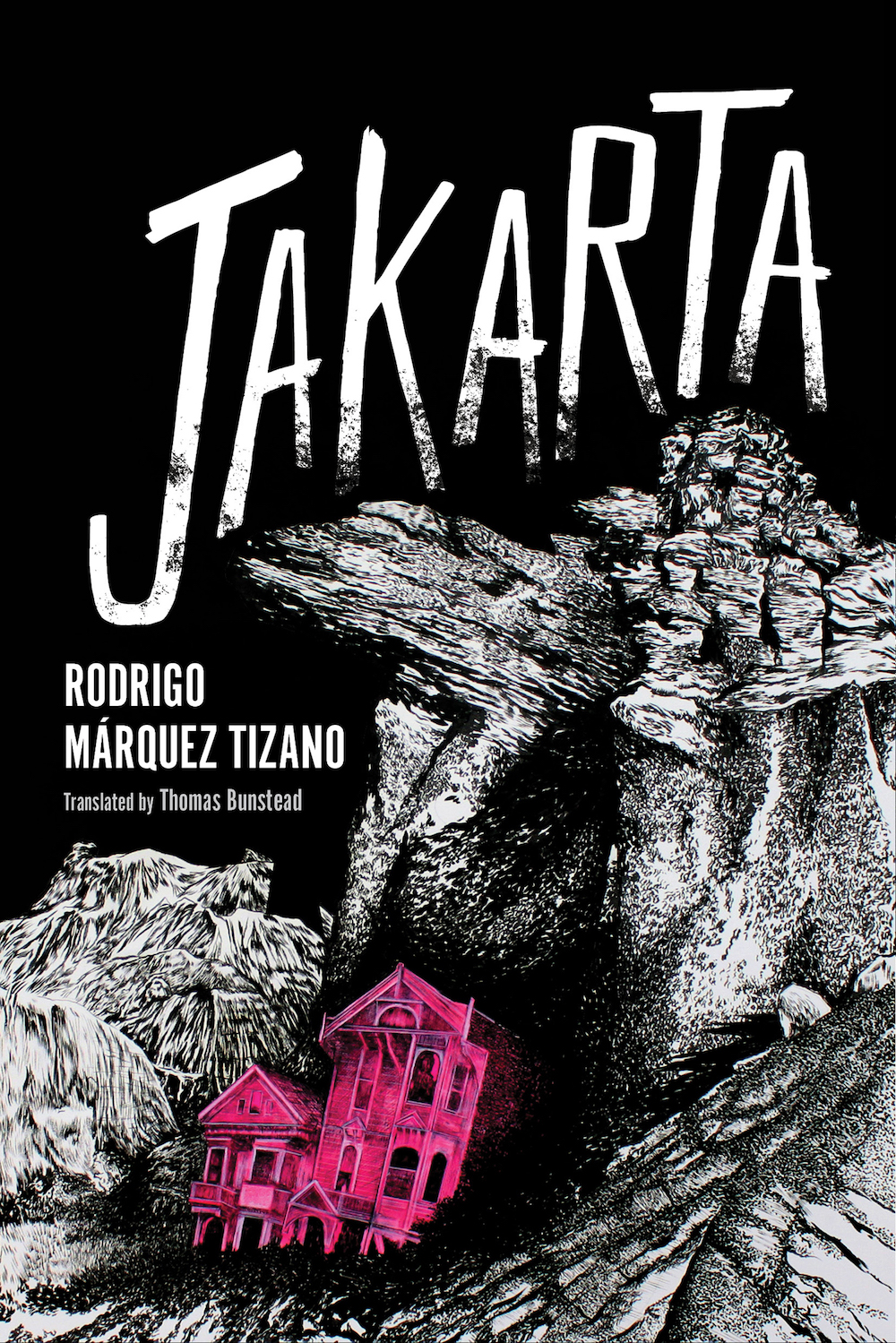Jakarta: A Novel by Rodrigo Márquez Tizano
Reviews
by Gabino Iglesias
Rodrigo Márquez Tizano’s Jakarta is one of those rare superb novels that are hard to get into but reward you for trying. Twenty pages into it, I was still confused about what I was reading. The novel takes place in a postapocalyptic world where a virus has decimated humanity. However, the opening chapters are mostly about soccer and gambling. To make things more confusing, some of the language Tizano uses is invented or mutated and often features wild accents in unexpected places. The result is a dense narrative that mixes science fiction, horror, adventure, and a touch of literary fiction into a story that never allows the reader to get comfortable.
At its core Jakarta is a tale of dystopia, looming disaster, and chaos. The narrator is a man who recounts the impact of a series of viruses on the city as he remembers his life before and during the turmoil. Meanwhile, the novel is full of other elements that enrich the narrative and keep the reader guessing. There are passages that show the devastation caused by the last virus, a bizarre stone that has the power to distort reality and the narrator’s childhood memories. It also influences the constant gambling in the city, which seems to be its main vice, taking place while gamblers are in a kind of trance for hours on end.
Jakarta is a bit disjointed at times, but it soon becomes evident that the incoherence is purposeful; it becomes a tool that allows Tizano to convey the atmosphere of the city and the narrator’s bizarre reality:
Though the city stagnates, and any possible works are safely buried under endless red tape, it’s still a place you never fully get a handle on. There is perpetual haze, which the light does little to dissipate: the polluted air and seawater meld to become one single salty airborne solution. That’s often how it is at sunrise, and how it stays until sunset—it’s often pretty impossible to distinguish the coming or going of the astral body. The wind and the constant metallic clatter of the extractors, day and night, are further disorienting factors, filling heads and chests with the sickly stink of deep-fryers and cream cakes.
While the viruses have devastating physical effects, much of what takes place in this novel has more to do with how the narrator processes events rather than with endless descriptions of diseased people. That said, a sense of dread permeates the novel. There are always strange sounds, darkness, sick animals, and constant wind that delivers viruses and “drives people out of their minds.” With the plethora of elements affecting the city and the perennial threat of a new virus, the city’s inhabitants are never at ease, and neither is the reader. This sense of discomfort is perhaps Jakarta’s greatest accomplishment: it gets under your skin and stays there, making you uncomfortable about many little things, some of which you can’t immediately identify.
Besides the ever-present sense of anxiety, there are passages in which Tizano fully engages with various genres, which in the end make this novel one in which fans of a variety of genres will find something to enjoy. For example, whenever the narrator talks about his job fumigating places to help eliminate a virus, the story dips into hard science fiction and stays there for a while, obliterating everything else. Similarly, the narrative turns to horror from time to time. When that happens, Tizano manages to deliver creepy, gory images with great economy of language: “Dogs were the first to contract the Ź-Bug, and the earliest sign would be their fur falling out, followed within a matter of days by the claws and teeth. Soon their bones would begin to disintegrate, and within a week they would be little more than sacks of sagging skin.”
The last element of Jakarta that merits discussion, and one that was unexpected in a novel that inhabits the space between horror and science fiction, is Tizano’s knack for occasionally injecting philosophical observations into the story. These philosophical morsels enhance the storytelling and allow Tizano to flex a different set of writing muscles:
Suffering is a kind of mother tongue, an umbilical cord with our own humanity: if you’ve hurt someone, or in the moments when you yourself are being hurt, you’re not alone. I suppose the opposite also holds: there’s company in castigation, but the tension that constitutes pain can also suspend it, bringing in a harsher kind of emptiness still, plugging you into a void that is even less traversable. A feeling that is liable to go on for months, years even, incubating inside you.
Any discussion of Jakarta would be incomplete with mentioning Thomas Bunstead’s outstanding translation. Given the amount of strange language used here, translating this book could not have been an easy task. Furthermore, this novel signals the arrival of a unique, important voice on the American literary landscape. Jakarta is an imaginary cultural narrative that can easily be seen as an exaggerated, fictionalized version of the truth. Lastly, it is also a superb addition to Coffee House Press’s catalog, which currently offers a diverse array of outstanding titles. Readers who have been craving a different take on the apocalypse would be remiss to skip this one.
Gabino Iglesias is a writer, professor, and book reviewer living in Austin, Texas. He is the author of Zero Saints and Coyote Songs. You can find him on Twitter @Gabino_Iglesias.
More Reviews

